
Imago
Credit – Bloomberg

Imago
Credit – Bloomberg
The NCAA’s control over the college sports arena was challenged when the U.S. District Court moved a ruling against them in favor of the athletes. The NCAA had previously restricted players who had multiple school transfers from immediately being available to display their gameplay barring a few exceptions.
Watch What’s Trending Now!
Two lawsuits were filed against the same and the court on hearing the complete matter decided to rule the result in favor of the athletes for now. This certainly became a landmark judgment.
ADVERTISEMENT
What is Temporary Restraining Order?
The U.S. District Court Judge John Bailey put a restraint on the NCAA’s rule of asking a multi-time transfer athlete to be out of the game for a season before being allowed to participate with his new team.
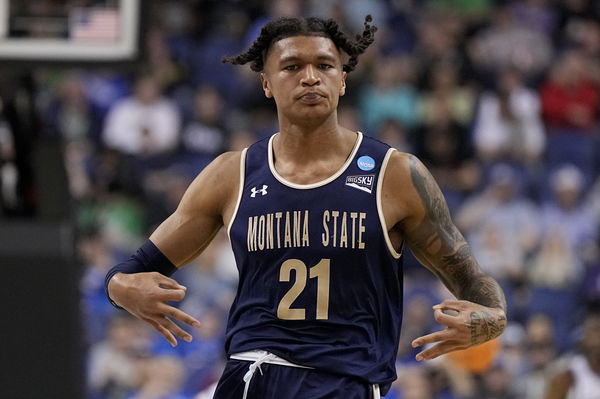
Imago
Credits – The Dominion Post
Allowing current sitting-out athletes to participate, the Northern District of West Virginia ruling will allow athletes to participate for the next 14 days. The temporary restraining order passed by the court also canceled the NCAA’s restitution rule for this case.
ADVERTISEMENT
The restitution rule states that if a court passes a rule and later reverses it then the NCAA can “vacate” the records or wins the team or athlete had during that period of time. Thus as per the rule even when the NCAA appeals against the TRO, and it is taken off, the NCAA cannot strike against the teams who allowed their benched players to participate and the athletes who did in any manner. However, the final ruling for a longer term is yet to come out and this order as per mentioned previously is only active for 14 days.
Top Stories
Footage Surfaces of Puka Nacua’s Brother Samson Slapping Fan After Arrest for Allegedly Stealing Lakers’ Adou Thiero’s SUV
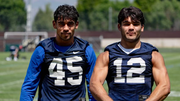
Footage Surfaces of Florida Police Arresting NASCAR Veteran Over Disturbing Public Misbehavior

Browns & Kevin Stefanski Sign Ousted Cowboys Player For Shedeur Sanders Before Week 16 Bills Game
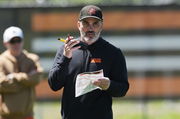
“RIP”: Prayers Pour In as Tom Brady’s Raiders Struck by Tragedy

“Rest in Peace”: Prayers Pour In From Dan Marino as Dolphins Legend Mourns Tragedy in South Florida Football

“What Do You Come Back For?”: Tony Gonzalez’s Strong Retirement Message to Travis Kelce Amid Chiefs’ Rebuild
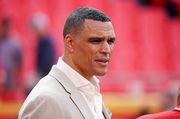
The NCAA will obviously appeal against the order with the next hearing on December 27. The organization released a statement informing fans and critics that they as for now will follow the court’s order.
ADVERTISEMENT
“As a result of today’s decision impacting Division I student-athletes, the Association will not enforce the year in residency requirement for multiple-time transfers and will begin notifying member schools,” the NCAA said in a statement.
Read More: With Kansas Stumbling Out, Can Purdue Maintain Number 1 NCAA Status?
There were two lawsuits on the NCAA claiming their rules were violated anti-trust law. They were filed by attorney general from the seven states and by the West Virginia basketball player RaeQuan Battle.
ADVERTISEMENT
What did the NCAA rule state?
For the record, Battle was a third-time transfer who previously plied his trade for the Washington and the Montana State. He couldn’t pay immediately due to the current NCAA rules but after this ruling stands to get a chance to show his on-court prowess for his new team.
The current NCAA rule allowed only second-time undergraduate transfers to be eligible to play without any serving period only if the player had a mental health issue or a physical injury, or if the “exigent circumstances” made an athlete leave their previous college, such as abuse. This had led to a lot of revolt against the NCAA and critics alleged that these rules were extremely subjective.
ADVERTISEMENT
Apart from Battle, there were two other players namely – the Miami (Ohio) quarterback Maddox Kopp and the Cincinnati Bearcats basketball forward Jamille Reynolds.
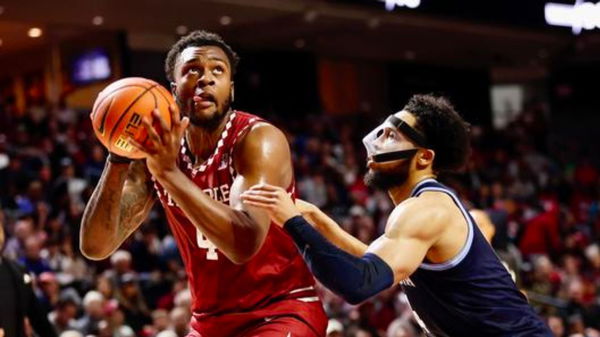
Imago
Credits – Temple Athletics
Reynolds even stated the difficulty he was facing “It’s harder to make more money.” According to these players, the NCAA laws obstructed them from making money from their current NIL deals. While Kopp and Battle had changed their schools once their head coach had transferred, Reynolds had done it for his own safety.
ADVERTISEMENT
If not for the current court ruling, athletes with multiple transfers had to sit out for a year before being able to participate with their new team. These players had to wait for a NCAA waiver if to wanted to immediately serve on court.
What is the anti-trust law?
The Sherman anti-trust law was implemented to provide economic opportunities and was against any such rule that obstructed inter-state commercial activities and competition in the market.
ADVERTISEMENT
As per Associated Press (h/t: WUNC 91.5), the North Carolina Attorney General Josh Stein had informed that he wanted to challenge the waiver process.
“As long as the kid is in good academic standing and on track to graduate, that kid should be able to decide for him or herself what’s in their best interest, for their personal growth, their happiness, their economic opportunity,” Stein said. “That is absolutely the American Way. And that’s a requirement of federal law. The rule offends that requirement.”
As per Mit Winter, the ruling might come for a longer time whenever the “preliminary injunction” is allowed most probably during the next hearing on December 27. This according to Winter might mean that the athletes can play without the waiver not only for 14 days but for months and years to come.
ADVERTISEMENT
Ultimately, it would mean a benefit to all multi transfer athletes who are looking to gain from NIL deals.
Watch This Story: Sending Shockwaves in The Basketball World, Know 18YO MiLaysia Fulwiley’s Story
Whatever might be a result of the ruling, this current decision by the court has definitely challenged the supremacy of the NCAA in the college sports circuit.
ADVERTISEMENT
ADVERTISEMENT
ADVERTISEMENT

